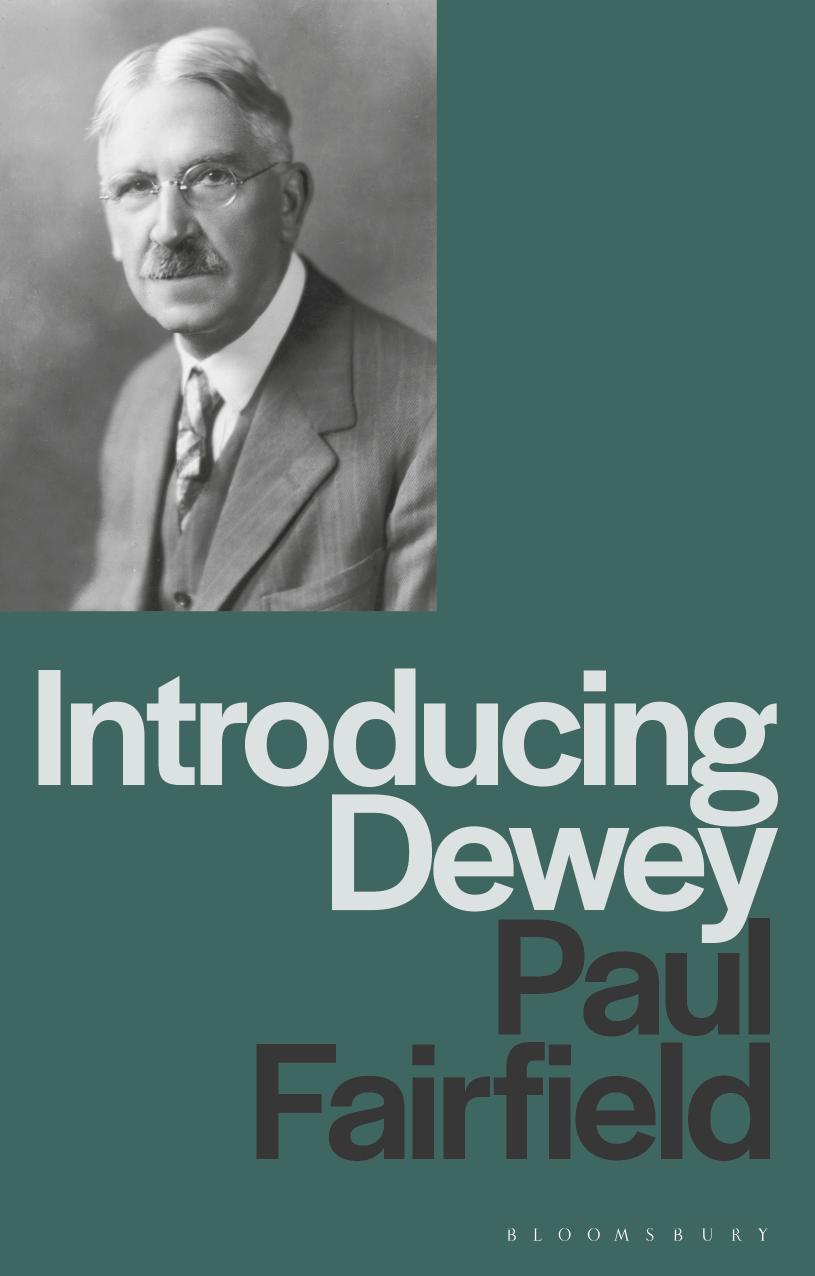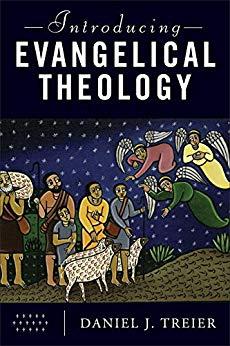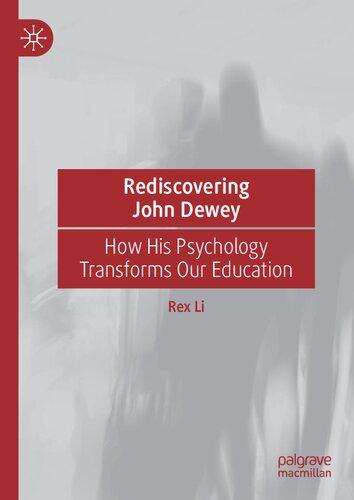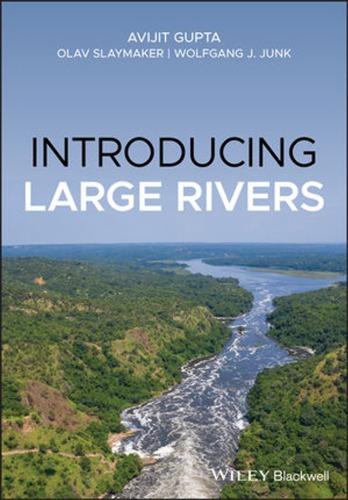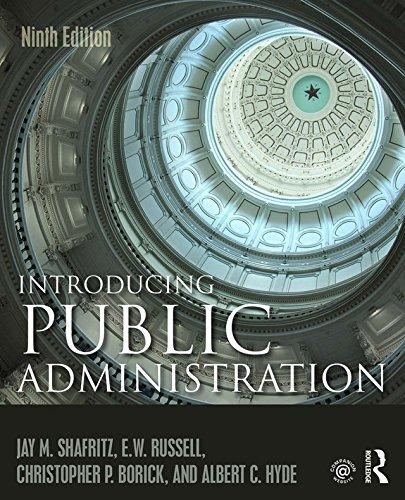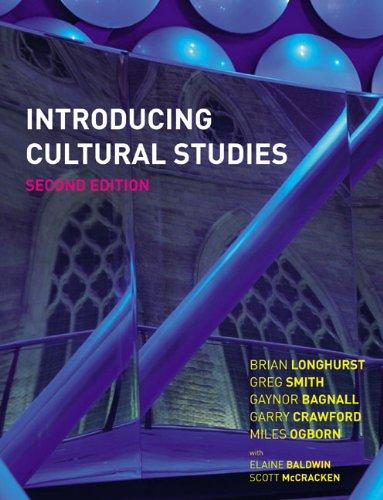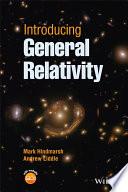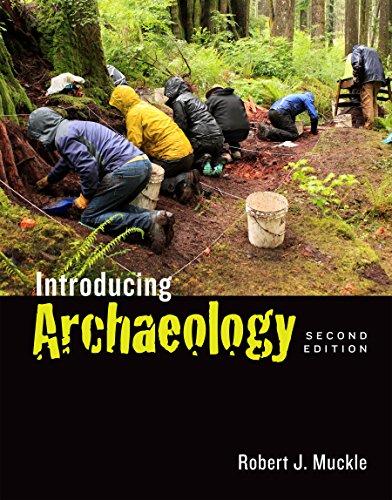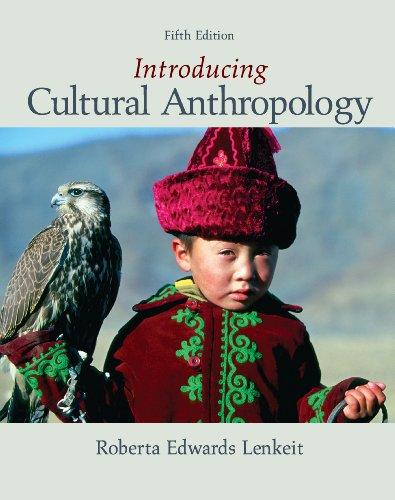Dewey’s Context
A short list of preeminent new-world philosophers of the twentieth century would include a prominent place for John Dewey, and a plausible case can be made for this thinker as the foremost among this group. Whether we are speaking of his originality or influence, the breadth and sophistication of his work, or the sheer volume of literary output, this figure places second to none in the canon of American philosophy. His collected works published by Southern Illinois University Press amount to thirty-seven volumes, to which has been added a more recently published book long thought to have been lost and titled Unmodern Philosophy and Modern Philosophy. 1 A more prolific philosopher would be difficult to name, or one with a longer research career. Dewey began publishing while still in his twenties in the early 1880s and never stopped until his death at the age of ninety-two, producing in that time books and essays on everything from the theory of knowledge to ontology, moral and political philosophy, philosophy of education and religion, aesthetics and logic, and a vast output of shorter pieces and reviews for a wide array of publications both academic and popular. His professional career was spent largely at the University of Chicago from 1894 to 1904 and thereafter at Columbia until his retirement from teaching in 1930. He would never retire from writing, however, and several of
his most important works would appear through the last decades of his life.
Dewey’s published work was largely well received from an early point in his career, and his reputation and influence grew steadily through the early decades of the twentieth century in the several subdisciplines of philosophy to which he was making major contributions. Introducing Dewey may seem an odd undertaking given that for the first half of the last century no American philosopher gained a higher profile both within and without the academic world than this mild-mannered Vermonter. His renown among the professional philosophers of his day was considerable and based primarily upon such major works as Democracy and Education (1916), Reconstruction in Philosophy (1919), The Public and Its Problems (1927), and The Quest for Certainty (1929) while his reputation in the broader culture was due in the main to his work as an activist and public intellectual. For decades, no major social issue would go unremarked from the pen of John Dewey, and his involvement in organizations such as the International League for Academic Freedom, the National Association for the Advancement of Colored People, and the League for Industrial Democracy demonstrated a commitment to American national affairs that regularly took him beyond the confines of the university. As a philosopher he is perhaps best known as the youngest among the great trio of classical pragmatists that also includes Charles Sanders Peirce and William James and for his contributions to political liberalism and the philosophy of education. If Dewey’s heyday may be said to encompass the first few decades of the twentieth century, his work went into something of an eclipse by mid-century for reasons that are not immediately evident. It can hardly be asserted that his work across various major branches of philosophy suffered any sort of large-scale refutation. A more plausible explanation is
that by the 1930s and 1940s the emerging domination of analytic philosophy effectively squeezed out classical pragmatism along with any other tradition that had formerly found a home in departments of philosophy throughout the English-speaking world. Dewey’s general approach was overtly anti-positivist and difficult to place on speaking terms with the new trend which by the middle of the century had crossed the Atlantic and gained hegemony in virtually every philosophy department in North America. Pragmatism was out, and so it remained until toward century’s end when a revival of sorts began and a new generation of philosophers became reacquainted with this trio of thinkers and the larger movement to which they belonged—a process that continues through the present day.
This development has had several causes, not least of which is the sentiment among many that the movement that sidelined the classical pragmatists decades ago may have run its course. The institutional hegemony of Anglo-American analytic philosophy today has several challengers, and neopragmatism in its several forms is one of the more promising. Additionally, the publication of Dewey’s complete works and voluminous correspondence has done much to revive interest in this thinker, as has an impressive body of scholarly literature on his thought, much of which is listed in the bibliography to this book.2 Special mention should also be given to Richard Rorty, whose appreciative and frequent references to Dewey accomplished a good deal to renew interest among the analytic discontent and also a pair of books that appeared in 1991: Robert B. Westbrook’s John Dewey and American Democracy and Jay Martin’s The Education of John Dewey: A Biography. 3 The latter volumes shone renewed light on a thinker whom it had long been de rigueur to ignore, while more recent decades have witnessed a proliferation of scholarship that has brought back to the fore this major figure in American thought.
Born October 20, 1859, in Burlington, Vermont, John Dewey was the third of four sons of Lucina and Archibald Dewey, both descendants of generations of Vermont farmers. Archibald had migrated to the city where he owned and operated a grocery store and also fought for the North in the Civil War. John’s evangelical Protestant upbringing and participation in the increasingly diverse civic life of this rapidly growing New England city would have a lasting formative influence on him, as would his university education first at the University of Vermont, where he graduated in 1879, and thereafter at Johns Hopkins, where he studied philosophy under the supervision of Hegelian scholar George Sylvester Morris, graduating with a doctorate in 1884. He began his academic career in the same year at the University of Michigan and would move on to Chicago a decade later, wherein Dewey and his wife Alice Chipman operated an elementary school that was established to put into practice the philosopher’s ideas regarding education and psychology about which he had begun to write. A dispute over the “Laboratory School” led to Dewey’s resignation from that university and subsequent move to Columbia, where he would spend the rest of his professional career. New York City would remain Dewey’s home until his death on June 1, 1952, at the age of ninety-two.
A philosophical education in late-nineteenth-century America must be understood within a university context in which the theological faculty continued to exercise a fair amount of authority over philosophy as well as the institution as a whole. Dewey’s mentor at the University of Vermont, H. A. P. Torrey, was a philosopherpreacher for whom the fundamental aim of a university education in philosophy was to provide intellectual support for the Protestant faith. Johns Hopkins was adopting an avowedly research orientation, which was a German import and an innovation in the new world, and it was there that Dewey undertook graduate studies and became
immersed in the tradition of German idealism and its AngloAmerican offshoot. Dewey was becoming especially well versed in the thought of Kant and Hegel and would remain within their general orbit in some fashion throughout his life. Having become acquainted with the St. Louis Hegelians as an undergraduate, Dewey, during his graduate studies, would develop from Morris a deep appreciation for Hegel in particular. From Hegelianism he was coming to regard all facets of human life as organically interrelated elements in which subject and object belong not to separate orders of being but to a single fabric in which any distinctions are contingent and dynamic in the way of any growing thing. A course in physiology that Dewey took as an undergraduate in Vermont also left an enduring impression on the young philosopher, in time giving rise to a biological and Darwinian conception of the human being in its multifarious interactions with the world. Indeed, Dewey would cite this course and its text, Thomas Huxley’s Lessons in Elementary Physiology, as sparking his initial interest in philosophy. His university education also exhibited a growing interest in politics, history, and literature, among other subjects, and indeed it would become a lifelong trait of Dewey’s to cultivate a broad range of interests by no means limited to the philosophical.
The philosophical landscape that Dewey encountered as a young man was dominated by a couple of movements with which he would need to come to critical terms and whose influence would never escape him. As noted, Protestant theology formed part of the ethos of American postsecondary institutions quite generally and largely accorded with the spiritual upbringing he had received as a boy, while in philosophy proper the principal movements that had achieved dominance in the universities through the better part of the nineteenth century were British empiricism and Scottish intuitionism or commonsense realism, although the latter had begun to decline by the middle
part of the century. Darwinian biology would have a dramatic effect on the North American academic scene across the disciplines, and common-sense realism in particular lost its hold by century’s end owing in large part to its rather static conception of the world. For an alternative, many, including the young Dewey, began looking to the German tradition and its British descendant. Post-Kantian idealism, and Hegel in particular, appealed to a growing number of American intellectuals a great many of whom by the conclusion of the Civil War were pursuing their education at German universities where they imbibed both an approach to philosophy that seemed to dovetail with the new Darwinian outlook and an approach to university education whose central focus was upon free-spirited research rather than the conservation of tradition. Dewey himself was attracted by what he viewed as a Hegelian reconciliation between subjectivity and objectivity which also cohered with the form of Christianity to which he continued to profess allegiance. James Good points out that
[a]t the university level, German influences on American education included the seminar-style course, the lecture course, laboratories, research libraries, university presses, learned societies, and academic journals. . . . American intellectuals viewed German educational thought as a liberalizing influence on American universities. As these German concepts permeated higher education in America, a system of research universities rapidly replaced the system of denominational colleges that were designed to train ministers.4
The philosophical landscape would change considerably over the course of Dewey’s long career, the latter decades of which saw the emergence of analytic thought which had been imported from Britain and seemed to many in the profession a more clear and rigorous approach to philosophy than both its predecessors and contemporary
peers had managed. It would never find favor with Dewey himself, however. Some of his later works would express skepticism about “two contemporary schools, now exercising considerable influence, the British analytic school and the school of logical positivism, [which] suffer greatly because of their dependence upon pre-Jamesian psychology.”5 If the latter complained of the pragmatists’ alleged lack of analytical rigor, Dewey’s numerous criticisms of the new trend centered in the main upon analytic philosophy’s arid rationalism, formalism, and narrowness. His critique of his continental European counterparts was equally and at times still more strident, his inclination being essentially to ignore continental philosophy in its entirety much after Marx, whom he held in low regard. The future of philosophy, Dewey’s conviction had it, lay decisively in the new world; the old he came to regard as something of a spent force both culturally and intellectually, although it must be said that his firsthand knowledge of his European peers left much to be desired. Dewey was no exception to the rule that philosophers have influences, and to identify his we must attend to the tradition in which he began working in the 1880s and which in some manner would remain with him throughout his life. While his positions would evolve over the decades, one does not find in Dewey’s thought any sort of rupture, although many would claim to find one in the form of a turn away from the Hegelianism of his youth by the time his major works were being written, a determination that his autobiographical essay “From Absolutism to Experimentalism” in 1930 seemed to many to confirm.6 Without going into detail here, Dewey’s “turn” away from Hegel was nothing so dramatic as has often been claimed, but a relative shift from what he came to regard as an “absolutist” rendering of Hegel—or, better, of AngloAmerican neo-Hegelian idealism—which he had imbibed while in his twenties toward a more sophisticated reading which was
neither a radical departure nor a wholesale rejection of the German thinker, but a more satisfactory interpretation which he could reconcile with his pragmatic experimentalism.7 British idealist T. H. Green would also exercise a profound influence on the young Dewey, as would the founders of American pragmatism, Peirce and James. The latter’s contributions to both psychology and philosophy deeply affected Dewey’s entire worldview, including James’ “radical empiricism” which represented an important (one might say phenomenological) departure from its British antecedent. The new empiricism and psychology that James and Dewey were developing aimed to be more consistent with Darwinian biology as well as Dewey’s quite sophisticated reading of Hegel. The problem both thinkers had with the older empiricism lay in the latter’s model of consciousness as standing to the world from an external point of view or as worldless subjectivity confronting an “external world” as if on the near side of an ontological abyss. The empiricism that James and Dewey were formulating proffers a naturalistic and biological conception of experience in which the latter is fundamentally inseparable from the world, while any dichotomy of mind and world, self and other, is decisively rejected. The new biology was speaking of the living organism as fundamentally bound up with its environment and engaged continually in a myriad of interactions, or what Dewey would come to call “transactions,” with a world that is encompassing and of a piece with the organism. James himself was no Hegelian, but Peirce was working out of an essentially postKantian framework as were the St. Louis Hegelians, who included William Torrey Harris and Henry Conrad Brokmeyer. It was Peirce who coined the term “pragmatism” in his essay of 1878, “How to Make Our Ideas Clear.”8 There he spoke of the “pragmatic maxim” as the hypothesis that an idea may be defined in terms of the practical effects that the idea’s object may be said to have, while James would soon broaden the term (in a way of which Peirce himself
decidedly disapproved) to connote a conception of knowledge and truth. Dewey would follow James in this, as in a great many ways, while his indebtedness to Peirce would be equally evident in his appropriation of the latter’s model of intellectual investigation as an essentially social, cooperative, and fallibilist inquiry into a disputed matter and of truth as, in Dewey’s words, “the ideal limit of indefinitely continued inquiry.”9 Knowledge and truth cannot be separated from the investigative process that pursues them, and since the process does not come to an end, we must conceive of both knowledge and truth as nothing incontrovertible but forever in the distance, as sophia for the Greeks was an object at most of pursuit and not possession. Indeed, it is no exaggeration that Dewey and the other pragmatists were taking up the Greek conception of the love of wisdom and in particular the practical philosophy of Aristotle which had spoken of moral knowledge as nothing absolute or separate and apart from the good, but the product of an unending back-and-forth of universality and particularity. The subtitle to James’ Pragmatism was A New Name for Some Old Ways of Thinking, where the “old ways” included a fallibilism and a humility more readily associated with the Greeks than with modern epistemology.
If Dewey would remain a fundamentally empirical thinker throughout his career, it is important to note in what sense this is so. The new, radical empiricism that he and James were formulating was not a wholesale rejection of Hobbes, Locke, and Hume. Philosophy begins with experience, as the older variants of empiricism had maintained. Everything depends, however, on what is meant by experience, surely one of the most vexed concepts in modern philosophy. The earlier empiricism had been wedded from the beginning to a metaphysical materialism and by the nineteenth century to a psychology in which human thought and behavior were conceived in terms of a “reflex arc.” On this essentially mechanical
model, human activity, whether cognitive or physical, is the third in a three-moment experiential model, the first two of which are sensation and ideation, and where all three are regarded as discrete and sequential. An experience of attraction, for example, begins with the passive reception of sensations caused by an external source which is followed by an act of cognitive registration and finally a reaction of, in this case, movement toward the object in question. Experience is essentially reflexive, reactive, atomistic, and quasi-causal, and it was a model that seemed to accord with a metaphysical view of the world as a system of matter in motion. Dewey’s rejection of the reflex arc was part of a larger move away from British empiricism and materialism, and it is here that the alliance of idealistic and Darwinian notions comes to the fore.
Experience as it is actually had by us—what phenomenologists would term “lived experience”—does not conform to the older model but, as Dewey came to view it, must be understood in the context of the living organism negotiating its way through a world to which it does not stand in opposition but in which it is wholly at home. What actually happens in human experience is of the order not of a mechanism being effected by causes but of a biological entity acting upon and being acted upon by other beings in an environment that is both natural and cultural. Experience is no simple affair of stimulus and response, where these are wholly discrete and temporally sequential. Rather, the two are bound up together in a way that eludes ready description but to which Hegel and Darwin both afford important clues. The process is dynamic, organic, and quasi-economic. Where James was especially fond of economic metaphors, Dewey preferred the biological, where we are to imagine the human being as a being in nature and culture which is constantly interacting or transacting with other organisms and with a natural environment, and which is engaged in a continuous process of solving problems of a great many
kinds. A key notion here is relations; the human being finds itself a participant in what one scholar calls “a network of interconnections,” where the connections themselves are organic and reciprocal, on the model of a garden:
The crops are rooted in the soil, which is aerated by earthworms. Insects provide the means of pollination for the plants. Rain falls on them, and energy is received from the sun. The interconnections are real, even though traditional philosophers had failed to give them their due. William James was an important exception. He had already prepared the way by emphasizing the importance of conjunctions and prepositions in our descriptions of experience. “We ought to say a feeling of and, a feeling of if, a feeling of but, and a feeling of by, quite as readily as we say a feeling of blue and a feeling of cold.”10
The world of our experience is not comprised of entities alone but of the relations that bind them into an intelligible and manageable world. Dewey’s idealism would speak less of consciousness and selfconsciousness than of experience, inquiry, and experimentation. Reflection is operationalized and naturalized, and any abstract antitheses are not natural givens but contingencies arising from our ongoing interactions with the world. This is what the St. Louis Hegelians had been emphasizing, a form of organicism that owed much to the author of the Phenomenology of Spirit but that also drew heavily upon Green and others in this movement in Anglo-American philosophy which encompassed everything from ontology and epistemology to social and educational theory. Organicism expressed a general view of human beings as interrelated in all aspects of their being into a unified quasi-organism to which the individual stood as cell to body or part to whole. A form of this doctrine would remain with Dewey throughout his career, while Hegel’s dialectic would
afford a model for his conception of experimental inquiry, and with a difference that will become apparent as we proceed. Both ideas would also inform Dewey’s philosophy of education, in the background of which would always lie the German notion of Bildung or education as an all-around formation, acculturation, and sophistication of the person. Hegel would remain an important figure here, and the conception Dewey formulated would build upon the older notion as would the St. Louis Hegelians who were developing a broader Bildung conception of philosophy itself which encompassed ethics and politics no less than education. The American transcendentalists would also develop variations on this theme.
The list of Dewey’s philosophical influences would include some of his teachers at the University of Vermont and Johns Hopkins, including especially the aforementioned George Sylvester Morris and H. A. P. Torrey. Noteworthy as well are G. Stanley Hall and Charles Sanders Peirce, with whom Dewey also studied. Of the latter he would write in the latter stage of his career, “C. S. Peirce is notable among writers on logical theory for his explicit recognition of the necessity of the social factor in the determination of evidence and its probative force.”11 Dewey would develop the point in some detail, but the basic notion of rational inquiry as a matter that does not proceed more geometrico but as an overtly social practice was a Peircean innovation, as was the attempt to center logical theory around this practice. Peirce’s sense of contingency and fallibilism would remain deeply rooted in Dewey’s work, as would James’ psychology and modified pragmatism. Rescuing James from his critics, most especially those who were quick to dismiss the argument of his Pragmatism and The Meaning of Truth, was a frequent preoccupation of Dewey’s, as was refining the argument and spelling out its far-reaching implications. Less an influence than an affinity is identifiable between Deweyan thought in general and twentieth-century phenomenology and
hermeneutics.12 Each of these may be traced to the post-Kantian idealist tradition in which they are likewise rooted, and while the differences are many, we might speak of Dewey’s pragmatic experimentalism, twentieth-century phenomenology, and philosophical hermeneutics as distinct branches on a single tree. Some such affinities are among the more central issues in contemporary philosophy and include themes of antifoundationalism, Bildung and practical philosophy, theorypractice reciprocity, the overcoming of dichotomies and a critique of enlightenment excesses, the mediatedness of experience, the situated self and replacing the mind-world opposition with a more dynamic and dialectical model. There is, of course, much to say on each of these themes and some others, but painting in broad strokes we may speak of Dewey and numerous of his European contemporaries—whom he unfortunately chose not to engage with and in most instances not to read—as attempting to work through the consequences of a postHegelian and indeed post-enlightenment philosophy. Some family resemblance is visible as well between Dewey and the American transcendentalists of the early-mid-nineteenth century. Whether we may count specific thinkers like Ralph Waldo Emerson or Henry David Thoreau as positive influences on Dewey may be debated, but something of the spirit of America as a new world and as frontier, of individual freedom and transcendence, is more than visible in Dewey’s thought, if somewhat in the background. This unmistakably American thinker saw his country as having rightfully turned its back in many ways upon the old world both politically, culturally, and also philosophically. Nineteenth-century American philosophy had received its initial impetus from both Britain and continental Europe, most notably British empiricism, Scottish intuitionism, German idealism and romanticism, but in America it had all been steeped in a tradition of individual independence and nonconformity, and an ethos of frontierism and reconstruction would profoundly alter
its various old-world inheritances. The concept of reconstruction became an especial favorite of Dewey’s; Reconstruction in Philosophy is more than the title to one of this thinker’s books but indicates the basic trajectory of a good part of his project as a whole. Intellectual reconstruction dovetailed with a characteristically American turn of mind toward new beginnings, which is readily seen in groups ranging from the Puritans to the founders. The pragmatic movement may well be seen as a late-nineteenth and early-twentieth-century installment of new-worldism, and this goes some way toward explaining its frosty European reception.
A couple of additional influences of which we must take note are Auguste Comte and the aforementioned Charles Darwin as well as, naturally, the classical Greeks. Comte was a positivist and Dewey decidedly was not; however, as a student, the American thinker was favorably impressed by the new science of sociology and at least some aspects of the project that sought the unification of the sciences and their application to societal affairs, albeit not along the lines Comte had envisioned. The two figures’ enthusiasm for science was carried much farther by Comte than Dewey, however, as the latter never lost sight of the limits of scientific rationality even while he would remain largely optimistic about what it could achieve in the realm of social life if it could be appropriately conceptualized and applied. His intellectual borrowings from Darwin would clearly surpass his debt to Comte; Dewey could well be described as a Darwinian, or a Darwinian of a kind. A social Darwinist à la Herbert Spencer he emphatically was not, but from the outset of his career he employed a biological model that owed much to Darwin in conceptualizing the world of human experience. Darwinian biology represented for Dewey a naturalized Hegelianism wherein the interrelatedness between the organism and its world could be understood minus the accent on natural selection and the survival of the fittest for which
the social Darwinists were arguing. Darwin had been neither an epistemological, an ontological, nor a political thinker, and it became Dewey’s task to develop what he regarded as the implications of the biologist’s viewpoint for the larger human world, and in a manner that rescued the latter from some of his purported disciples.
Dewey’s debt to Plato and Aristotle is apparent in at least a few respects. While Dewey’s empirical and naturalistic turn of mind owed much to Darwin, we might mention Aristotle here as well. The latter’s understanding of nature and of natural change as orderly and governed by identifiable principles was echoed in Dewey’s view in which, as he expressed it, the changes in the living thing are orderly; they are cumulative; they tend constantly in one direction; they do not, like other changes, destroy or consume, or pass fruitless into wandering flux; they realize and fulfil. Each successive stage, no matter how unlike its predecessor, preserves its net effect and also prepares the way for a fuller activity on the part of its successor. In living beings, changes do not happen as they seem to happen elsewhere, any which way; the earlier changes are regulated in view of later results.13
Nature is intelligible, and changes in human and other organisms are not chaotic but structured and knowable. They are bound up in a living being’s purposiveness and function, albeit along more Darwinian than Aristotelian lines. The task of the scientifically minded philosopher is to comprehend this orderliness, and this is accomplished, Dewey held, by means of neither a static nor a chaotic model but one that is processual, emergent, and transactional. The tradition of practical philosophy that stems from the Nicomachean Ethics is also clearly discernible in Dewey’s thought and not only in his ethical theory. Several of pragmatism’s basic premises can be traced to this text in particular, while to Plato’s Republic we may trace
the tradition of the knower who returns to the world of practical affairs to resolve what Dewey would call “the problems of men.”
Reading Plato would always be a favorite pastime of Dewey’s, and while one would be hard pressed to find many Platonic doctrines at work in his thought, something of its ethos and understanding of the purpose of philosophy itself remained visible there. By the later decades of his career, Dewey would frequently lament the condition in which philosophy in the twentieth century now found itself. If, as he expressed it, “[i]t is perhaps too extreme to say that philosophy today is in a state of doldrums . . . only optimists, who at best are not numerous, would say that philosophy is making great headway at present.” What had happened, as he saw it, was that the classical pursuit of wisdom had shrunk down from what Socrates had practiced in the Athenian agora to “a form of Busy-work for a few professionals,” with an accompanying narrowing of horizon and diminution of scale.14 The attitude of the Greek thinker had been replaced by that of the “lexicographical autocrat”—not a kind description but one that reveals much about Dewey’s rather ambitious view of what philosophy can still be in the modern world, which is not fundamentally different in kind from what it had been for the Greeks.15 The near doldrums of philosophy in his time was owing, as he saw it, to a few factors, perhaps foremost of which was the rather arid formalism or new scholasticism that had become predominant in the profession in the English-speaking world. Remarks like the following are typical of Dewey’s sentiments on the topic and would find frequent expression in his later works: “One very popular view, now, in philosophical circles in our colleges and universities, is that mathematics is the branch of knowledge with which philosophy is most directly and intimately concerned, and mathematics is the science that has nothing whatsoever to do with anything that exists, either in nature or in the human mind directly. And by devoting
itself to purely formal statements and formal analyses, philosophy, or philosophers, have found a way of escape and evasion from these more serious problems.”16 In a similar vein, “This splitting up of things that exist together has brought with it, among other matters, the dissevering of philosophy from human life, relieving it from concern with administration of its affairs and of responsibility for dealing with its troubles. It may seem incredible that human beings as living creatures should so deny themselves as alive. In and of itself it is incredible; it has to be accounted for in terms of historic-cultural conditions that made heaven, not the earth; eternity, not the temporal; the supernatural, not the natural, the ultimate worthy concern of mankind.”17 Similar remarks are found throughout Dewey’s writings, and what they evince is a thinker deeply troubled by the state of philosophy in his day. Philosophy, as he saw it, had turned its back on the vital issues of the world and toward a formalism and rationalism that was inward-looking, neither inclined nor able to speak to the broader culture, and of no interest to those outside of a particular branch of the academic profession. The kind of social issues that had been regular topics of philosophical debate throughout its history had become “unphilosophical” in a general turn toward matters technical and disconnected from human life. Questions of ethics, politics, education, religion, art, and culture had been put aside in favor of arid intellectual exercises the point of which was evident to no one outside of a small group of specialists. Common sense had also fallen out of favor in the preoccupation with formal analysis for its own sake. All of this seemed to Dewey a retreat from philosophy’s original and still rightful task of inquiring into the myriad issues that beset human experience in its various modes, and it was a diagnosis that became increasingly critical toward the middle of the century.
Dewey’s philosophy may be understood as well in light of his ambitious and still somewhat Greek conception of the role of a
philosopher in a given culture and time period. This is to serve a function that is the virtual antithesis of the academic specialist and technician but to examine “cultural problems” in a very general sense of the phrase, one that encompasses “language, religion, industry, politics, fine arts, in so far as there is a common pattern running through them, rather than as so many separate and independent things.” As he would elaborate this point in 1947,
The principal task of philosophy is to get below the turmoil that is particularly conspicuous in times of rapid cultural change, to get behind what appears on the surface, to get to the soil in which a given culture has its roots. The business of philosophy is the relation that man has to the world in which he lives, as far as both man and the world are affected by culture, which is very much more than is usually thought.18
He would often repeat the point that modern Western culture was experiencing an unprecedented extent and pace of change, and while in itself this was nothing to be regretted it had the potential to get out of hand if no one, whether philosophers, scientists, or anyone else who could claim real knowledge, should be capable in some fashion of getting in front of it. Much of the “turmoil” of modern life, the manifestations of which seemed to him ubiquitous, is owing to a failure of knowledge as university professors in all disciplines had become ever-more specialized and incapable of seeing any larger picture of the human world. What was needed, Dewey believed, was something of a modern counterpart to the Greek philosopher, a relative generalist who could venture into various disciplines or subdisciplines while taking special note of any given specialty’s implications for some others, thus understanding some aspects of the whole in its organic interrelatedness rather than in the isolation that had become customary in his time. What he called the “mentally active scholar,” of whom he was surely one, possesses a “mind [that]
roams far and wide. All is grist that comes to his mill, and he does not limit his supply of grain to any one fenced-off field.”19
It is no surprise, then, that Dewey’s own writings include major contributions to most of the major subdisciplines of philosophy, where his inveterate habit was to analyze a given theme with constant reference to some of its cognates and in a style of prose that was often accessible to nonspecialists. The broad-mindedness and far-ranging curiosity for which he called he also practiced, as a quick survey of his book titles reveals. If “the great enemy” of knowledge “is scholastic specialization,” what is needed is a relatively comprehensive view of the human condition both for the purpose of understanding and “in order that the current may receive a new direction.”20 The thinker strives to “get to the soil” of the culture and to attend to the roots that grow there, as the classical Greek philosophers had attempted in their time. They were philosophers not of the blackboard but of the world of human existence, inquiring with their contemporaries and predecessors into what Dewey would often call “the problems of men” in contrast to the purely technical and verbal problems that preoccupy many a philosophical specialist. “Whenever philosophy has been taken seriously,” Dewey wrote, “it has always been assumed that it signified achieving a wisdom which would influence the conduct of life. Witness the fact that almost all ancient schools of philosophy were also organized ways of living, those who accepted their tenets being committed to certain distinctive modes of conduct; witness the intimate connection of philosophy with the theology of the Roman church in the Middle Ages, its frequent association with religious interests, and, at national crises, its association with political struggles.”21 Dewey would never be an opponent of philosophical theorizing, but the crucial point for him and his fellow pragmatists was that theoretical rationality is not an end in itself but belongs to the larger effort of coming to critical terms with our practices. Theory and practice form a unified structure where the latter is the alpha
and omega of theory-construction and the function of the former is to provide illumination on the myriad undertakings in which human beings engage and to advance hypotheses whose orientation is toward resolving the “problematic situations” that arise in the course of practical life. The pragmatic movement in many ways may be understood as an effort to draw down to earth the speculations of philosophers and academics across the disciplines and to orient them back to the complex terrain of human experience and human problems. It was the existential vacuity and sterility of certain forms of philosophy to which Dewey took particular exception, and on grounds that extended beyond shortcomings in the arguments themselves to the issue of their relevance. Any hypothesis, Dewey and his fellow pragmatists maintained, that could not satisfy the pragmatic maxim or answer the question of the difference its being true or false makes—from the point of view of human beings encountering a problematic situation in their experience of the world—is a pseudoproblem. A speculation, be it philosophical, scientific, or what have you, that cannot find its way back to the world is a castle in the air. The posture of what he would call the pragmatic experimentalist is toward problem-solving, and where problems are not limited to the practical in a narrow sense but must arise in at least potentially real-world conditions—for someone, at some time, in some circumstances— and where this does not preclude problems of a relatively abstract kind. The pragmatic philosophers were one and all theorists, but the decisive matter was whether such theorizing was regarded as an end in itself or was instrumental in resolving real difficulties that arise in the course of human life. In this way, the pragmatist, as Dewey saw it, was following in a tradition that stemmed from Plato while the philosophies for which he had no use almost prided themselves on their disconnection from experience. Socrates was not disconnected from his fellow Athenians and the difficulties that beset their lives,
and in a similar way pragmatists “may, if they feel it necessary, draw support and courage from the fact that they are following, however imperfectly, in the path initiated by the man to whom is due the very term philosophy.”22
As could be said of the classical pragmatists in general, Dewey was in many ways a common-sense philosopher. His political thinking, for instance, was deeply rooted in the American liberal democratic tradition, and while he was quite capable of swimming against the current, he was inclined toward neither adopting extreme positions nor striking radical poses at any point in his career. His views on education as well, while in some ways radical, were more measured and nuanced than the progressive movement which would claim him as an influence. On the question of religion, his A Common Faith of 1934 strives to articulate a conception of faith that “has always been implicitly the common faith of mankind” rather than a theologically controversial position.23 Many other examples may be found of an even-handed thinker consistently resisting extremes and often popular conceptions as well while remaining within an orbit of common sense. A dialectical thinker of a kind, his general habit was to reject both sides of a dichotomy for some higher synthesis, and without the drama that many a left Hegelian would prefer. Grand oppositions needed to be reunified, and it was the new world that afforded the conditions in which this work was likely to be accomplished. Dewey’s conviction on this matter bordered on cultural nationalism; “America,” he would write in 1944, “must be looked upon as either an offshoot of Europe, culturally speaking, or as a New World in other than a geographical sense,” and it was the latter option that he urged.
[C]ontinental Europe in general and Germany in particular has been the home of the practices and the philosophy based on strict
